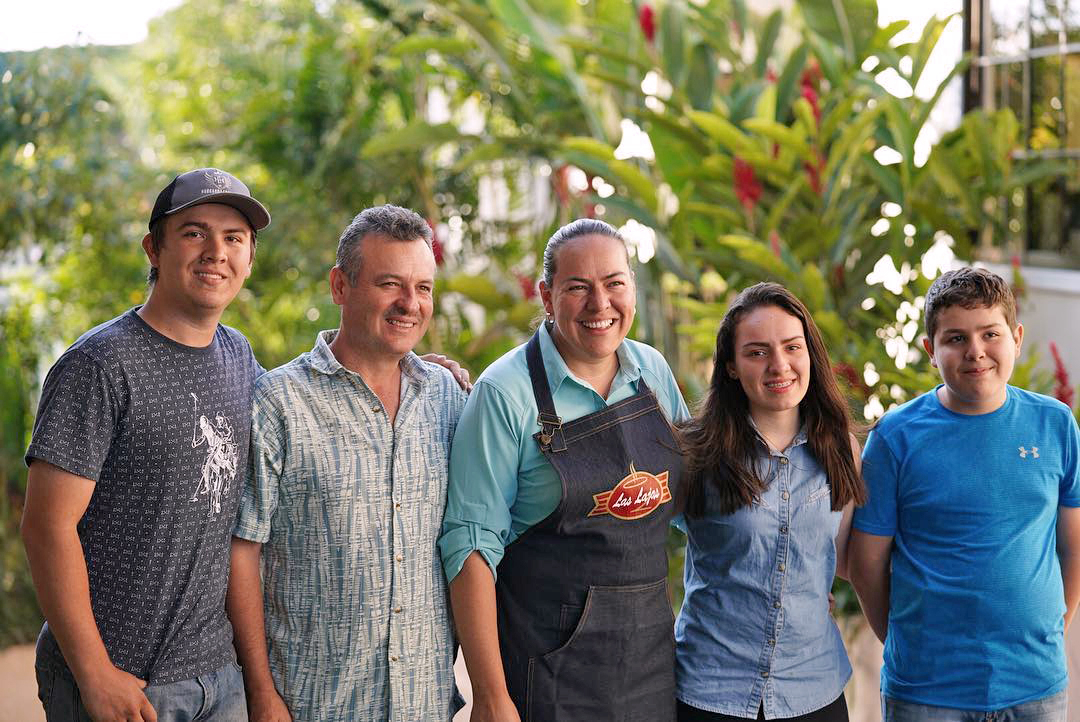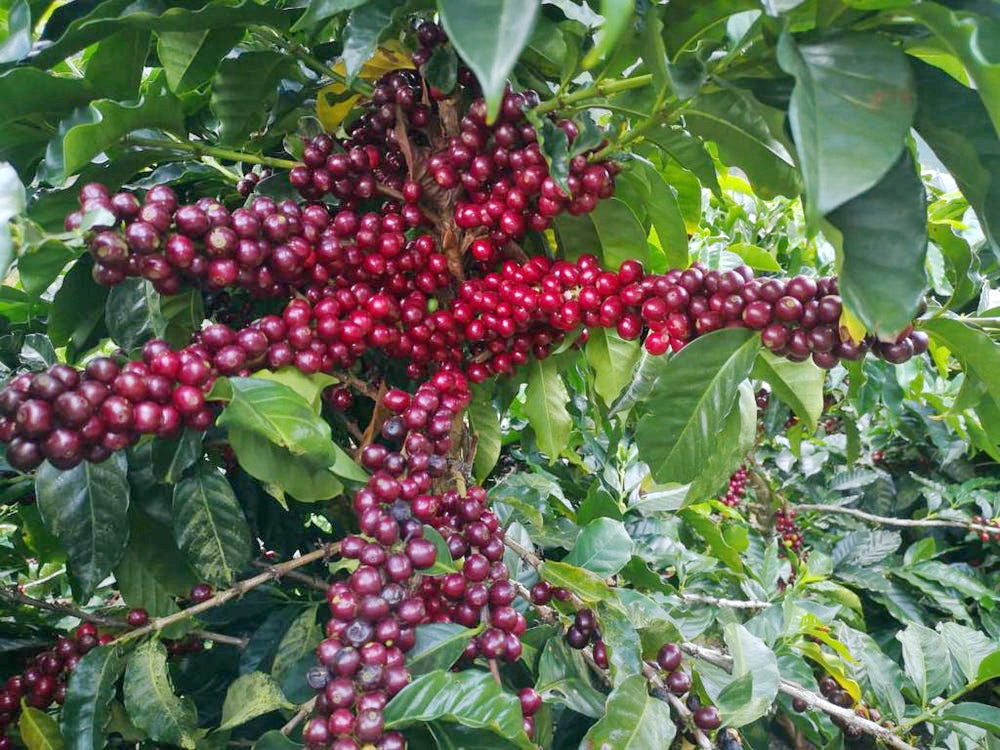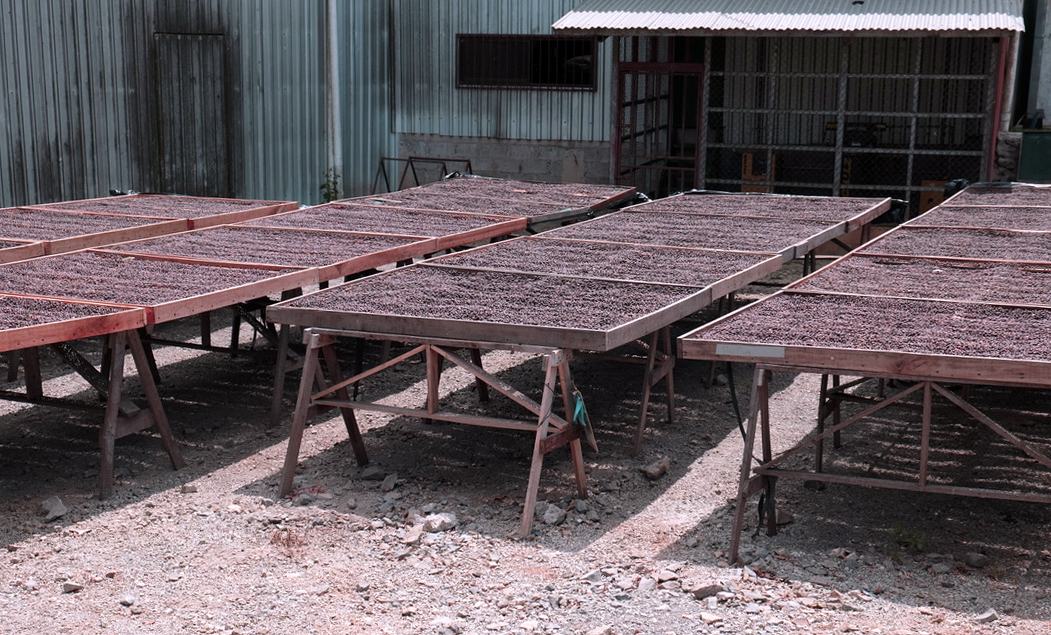












Costa Rica
Cup Notes: Orange, Milk Chocolate, Raisins, Prune
A natural Costa Rican lot, offering a clean, vibrant cup with bright acidity and smooth, lingering sweetness. Juicy and lively, it is equally rewarding as espresso or filter, with a balanced, versatile profile.
Suggested for espresso and filter
when we roast
We freshly roast to order all coffees on Monday, Wednesday and Friday (excluding national holidays), and ship the same day! Cut-off time is 11:59pm (UTC+1) of the day before the roast day. *We only ship whole beans*
Costa Rica’s diverse climates and landscapes have shaped a coffee culture beyond its size. In the Central Valley, the Chacón family grows their Las Lajas coffees — a name synonymous with care and innovation.
Six family farms, owned by six brothers and spanning 73 hectares, lie on the slopes of the Poás volcano. The family mill stands at 1,300 masl, with the farms rising to between 1,450 and 1,500 masl. It is overseen by Oscar Chacón and his wife Francisca, with support from their four children. Each year, around 2,000 exportable bags are carefully managed from cherry to parchment.
Guided by respect for nature, the family avoids chemicals, recycles coffee pulp into compost, and minimizes water usage. They continually explore varieties — including Caturra, Red and Yellow Catuai, Paraiso, Milenio, Villa Sarchi, Geisha, Pacamara, and SL8 — balancing diversity with expression of terroir.
What began as a modest family project has grown into a respected operation, employing 20 people at the mill and up to 100 pickers during harvest — a testament to how dedication and curiosity can turn passion into excellence.

Villa Sarchi is a natural mutation of the Bourbon variety, discovered in the 1950s in the West Valley of Costa Rica, near the town of Sarchí from which it takes its name. Compact in size and well adapted to high-altitude environments, it produces evenly ripened cherries and thrives under shade. This variety is appreciated for its resilience and its ability to deliver exceptional cup quality when cultivated under the right conditions.
In the cup, Villa Sarchi often reveals a bright, lively acidity and a sweet, layered complexity — with notes reminiscent of citrus fruit, red apple, and floral undertones — expressing the elegance and clarity characteristic of Costa Rican coffees.

The harvest takes place between December and February. Only 100% ripe cherries with high sugar content are selected and floated using Penagos machines to remove any defective fruit. The coffees then undergo Las Lajas’ signature Alma Negra process — a method developed by Oscar and Francisca Chacón — which combines careful greenhouse and sun drying over 20–30 days to enhance the pure essence of the cup.
During the first week the cherries rest on raised beds with constant movement; they are then moved to the greenhouse patio and dried in thin layers by day, while being gathered into thicker piles by night, repeating this cycle until reaching perfect dehydration. After drying, the coffee rests for 60 days or more before export, a final pause that helps stabilise and deepen the flavours.
Over time the Chacón family has refined these methods to produce distinctive profiles, reflecting patience, precision and respect for the raw material.
